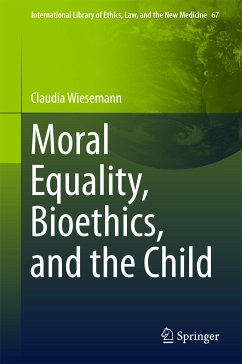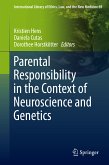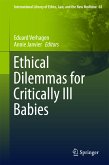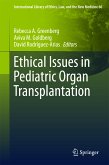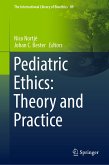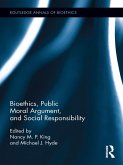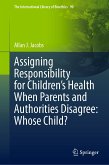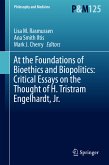Dieser Download kann aus rechtlichen Gründen nur mit Rechnungsadresse in A, B, BG, CY, CZ, D, DK, EW, E, FIN, F, GR, HR, H, IRL, I, LT, L, LR, M, NL, PL, P, R, S, SLO, SK ausgeliefert werden.
Hinweis: Dieser Artikel kann nur an eine deutsche Lieferadresse ausgeliefert werden.
"In an era of complicated pediatric bioethical dilemmas due to technological advances, this book is a meaningful contribution to the debate about how much decision-making power a child should have in his or her medical treatment. ... it is clear that she intends to reach readers interested in pediatric bioethics. This would include ... ethics students, pediatric fellows and physicians, and clinical ethicists." (Jacob Harrison, Doody's Book Reviews, January, 2017)

